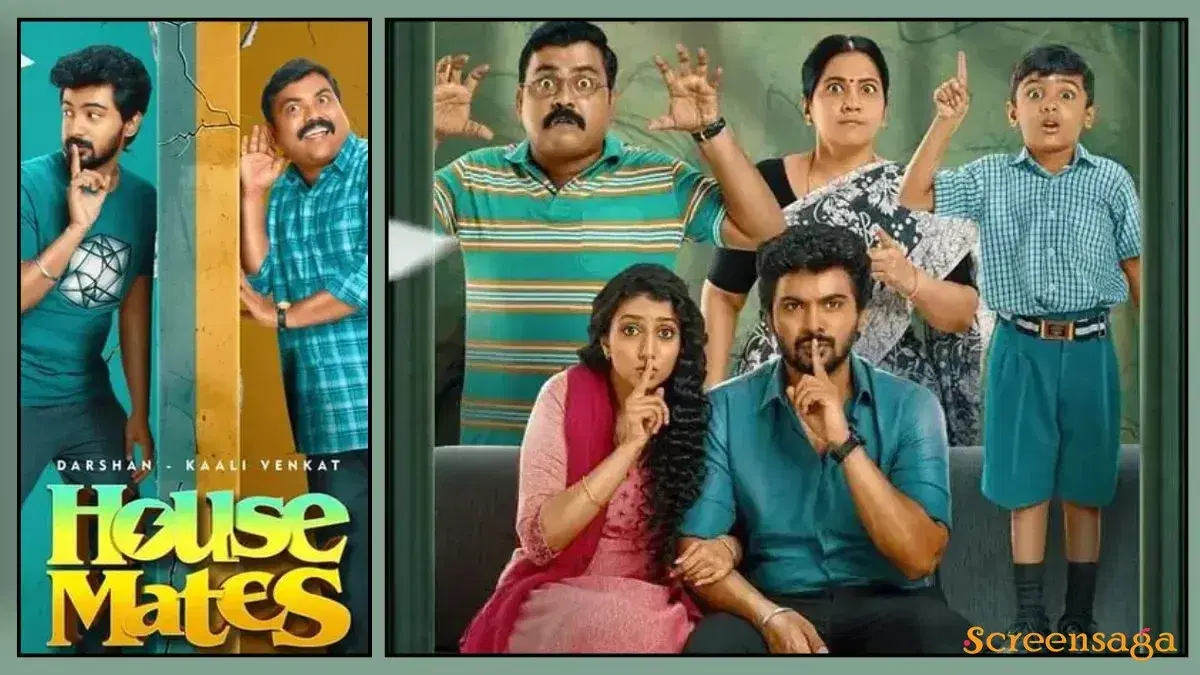Thamma Clarifies No Vampires, Introduces “Betaalism” — What’s Next for the Horror Comedy Universe?

As the film Thamma gears up for its October 21 release, lead star Ayushmann Khurrana steps in to decode the myth, the genre and the phrase “betaalism” — clarifying fans’ confusion and raising expectations for this horror-comedy hybrid.
With its release just around the corner, the horror-comedy film Thamma has kicked off its promotional phase with a moment of clarity—and intrigue. Lead actor Ayushmann Khurrana recently addressed the swirling rumors about vampirism in the film, stating openly that while the teaser had vampire-like visuals, the film isn’t about vampires in the Western sense. Instead, Ayushmann introduced the term “betaalism” to define the film’s mythic stakes, suggesting a unique culturally rooted supernatural conflict.
Clearing the myth
The confusion arose because the trailer for Thamma featured dark blood-lust themes, fangs, night sequences and bats—all of which hinted at a vampire film. Some fans speculated it would pit a vampire against vampire-hunter, or dive into gothic horror territory. But during a press interaction, Ayushmann said: “We don’t call them vampires—we call them Betaals. The mythology is Indian, the stakes are local, and the horror is rooted in folklore. So when people ask ‘is this a vampire film?’ the answer is no—not in the Western sense.”
According to Ayushmann, the film explores ancient myths about Betaals—an Indian folk entity that shares certain traits with vampires but has its own cultural identity. He explained that the two-timeline narrative moves between present-day India and the ancient Vijayanagar empire, where the Betaals were born out of betrayal, blood oaths and supernatural vengeance.
What this means for the genre
By clarifying the myth, the team of Thamma signals that the film isn’t just another horror comedy riding fangs, jump scares and gore. Instead:
- It aims for cultural resonance: using Indian folklore rather than importing Western vampire tropes.
- It blends horror with comedy: part of the broader “Maddock Horror Comedy Universe” (MHCU), the film expects to balance scares, laughs and mythic spectacle.
- It positions itself as a festive-season release (Diwali window), where audiences expect spectacle, star power and family-fit horror rather than extreme horror.
Why the timing and cast matter
Thamma is slated for October 21, which aligns with the Diwali release window. This gives it a strategic advantage: festive period means family outings, and horror-comedy often works well for mixed groups seeking thrill plus entertainment. The cast is also notable: Ayushmann Khurrana is known for genre-bending films; alongside him is Rashmika Mandanna, and the supporting cast includes veteran actors like Nawazuddin Siddiqui, Paresh Rawal, and Sathyaraj—making it a cross-regional, pan-Indian draw.
Early marketing shows the film will also have multi-language release (Hindi, Tamil, Telugu), amplifying its reach. The fact that Ayushmann is making clarifications now suggests a strong push to manage audience expectations—and convert curiosity into bookings.
Audience expectations
From what we know so far, viewers will be looking for:
- A smart horror narrative that doesn’t rely purely on clichés.
- Emotional stakes: the two-timeline narrative must connect the ancient myth with modern characters’ dilemmas.
- Balanced tone: enough scares for horror fans, enough laughs and star moments for family audiences.
- Cultural authenticity: the mythology around Betaals needs to feel grounded, not just a rehash of Western vampires.
Challenges the film might face
With high expectations come risks. Some potential pitfalls:
- Genre confusion: If audiences expect typical vampire horror and get something different, it may create mismatch.
- Balance between horror and comedy: Too much comedy could undermine scares; too much horror may alienate family audiences.
- Release crowding: The Diwali window tends to see multiple big releases; Thamma will need strong promotion and distribution.
- Comparisons with earlier horror-comedies: The film is part of a larger universe—fans will compare it with predecessors and expect originality.
What this means for the “Horror Comedy Universe”
The makers of Thamma are attempting something bigger: build a recurring universe of horror-comedy films in India—a genre that has succeeded in Hollywood (think Ghostbusters, Zombieland) but is still evolving in Indian cinema. If Thamma succeeds:
- More Indian filmmakers may explore folklore-based horror rather than imported monster tropes.
- Studios may invest bigger in horror-comedy genres, leading to better VFX, scripts and supporting talent.
- Cross-regional releases become more viable as horror and myth transcend language more easily than some other genres.
Conclusion
Thamma’s announcement and myth-clarification ahead of release are strategic. By articulating what the film is (and what it is not), the team is shaping audience mindset and building expectation accordingly. For fans of horror, myth and star cinema, the film promises to deliver something familiar yet fresh. And for the broader industry, it could indicate how Indian cinema is maturing its genre films—not just making, but positioning them smartly in a competitive marketplace.
Share:




